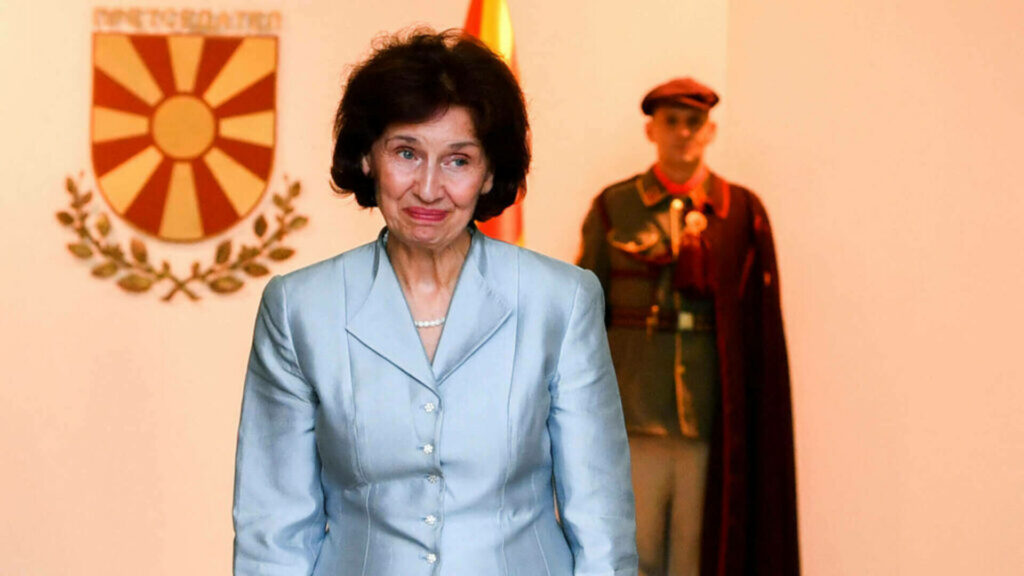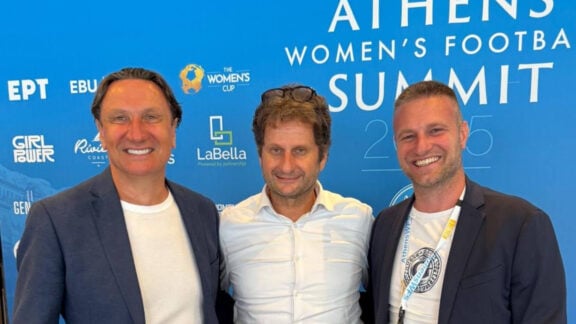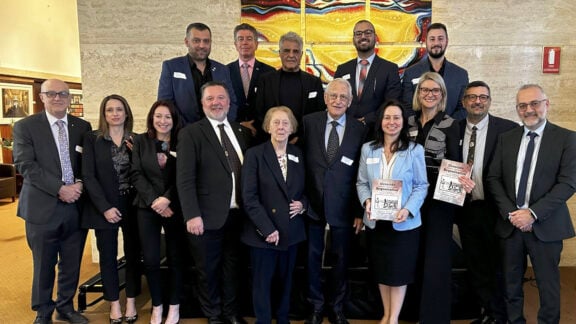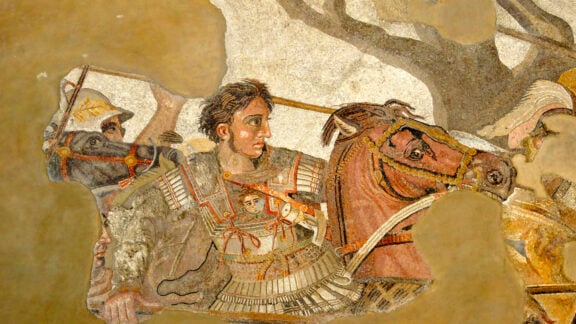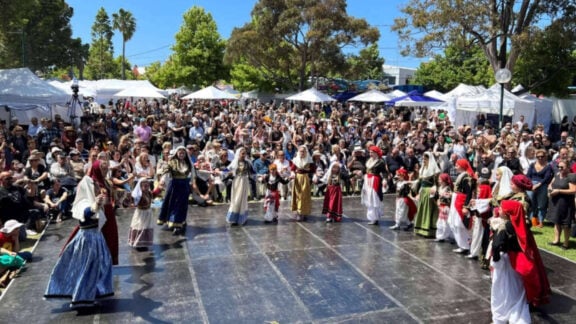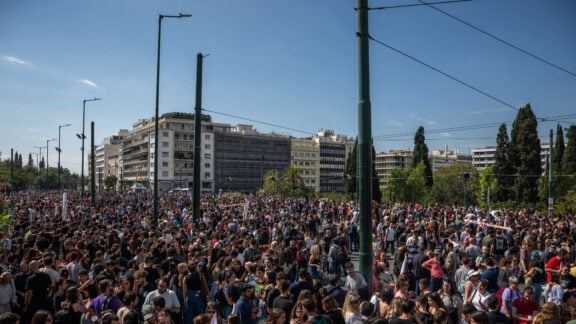Australia has confirmed it only recognises the naming convention ‘North Macedonia’ in response to a letter from the Halkidikeon Association Aristotelis O Stageritis.
The association expressed concerns over the president-elect of North Macedonia, Gordana Siljanovská -Davkova, who, when being confirmed through the pledge to the nation’s constitution, used only the term “Macedonian” to refer to herself.
Siljanovska-Davkova Defends Constitutional Adherence
The populist new president maintains that she did not violate the constitution by using ‘Macedonian’ to describe herself.
“I did not violate the constitution because I used another name,” Siljanovská -Davkova said in response to journalists’ questions after the South East European Cooperation Process (SEECP) in Skopje this week.
She insisted that not using the country’s constitutional and internationally recognised name of North Macedonia did not violate the constitution.
“Let me remind you that my personal documents, passport, identity card, all official documents of the presidency bear the constitutional name.
“They are within the framework of international law and the framework of the constitution. Every statement of people holding office is interpreted as an official statement, but each of us has, like the yin-yang symbol, two faces, the official one and another.
“As a human being, I have the right, I repeat from the time of Socrates until today, within the framework of freedom and freedom of thought, free expression of thought, to express myself as I express myself, and I do not think that this is a violation of either the constitution or international law,” Siljanovska- Siljanovská said.
Siljanovská expressed “pleasure” that Greek Foreign Minister George Gerapetritis and Deputy Foreign Minister Alexandra Papadopoulou attended the SEECP.
“We sat next to each other (with G. Gerapetritis). I am very happy that he came. Because the flight was delayed, we left space for him to speak last.
“His messages were about the region, that we need to help each other, build the rule of law, respect international law, and continue where there were unambiguous definitions,” said President Siljanovská.
Flurry of letters
A letter by the Pan-Macedonian Association of Melbourne and Victoria (Pan Mac) thanked the Halkidikeon Association for seeking clarifications on the official name of Greece’s northern neighbour.
The letter, signed by Pan Mac President Petros Stephanides, President and Secretary Charis Tsairis, thanked the association for seeking “clarification” after the recent elections in North Macedonia “where the newly elected government threatened to undermine the agreement.”
It added that North Macedonia’s president-elect “failed to follow the agreed mandate during her swearing-in ceremony. This reversal caused considerable discontent in the international community”.
The Halkidikeon Association, “sought further advice and information” on the use of the symbol of the Sun of Vergina and “the public display of racist inflammatory maps, and the presence of these symbols and maps at events attended by government officials and parliamentarians.
The letter from DFAT to the Halkidikeon Association:
Dear Mr. Kourtis
Thank you for your email of 27 May 2024 to the Minister for Foreign Affairs regarding Australia’s position on the naming conventions for North Macedonia.
On 14 February 2019, the Government of North Macedonia advised that the Prespa Agreement, signed with Greece in June 2018, had entered into force. As a result, the country could henceforth be known as the Republic of North Macedonia (abbreviated as “North Macedonia”). On 19 February 2019, Australia adopted these naming conventions as its official nomenclature.
Australia has no current plans to change the use of the naming conventions established by the Prespa Agreement. The Department of Foreign Affairs and Trade encourages all levels of government in Australia to use the agreed naming convention relating to North Macedonia.
I believe this information is useful.
Yours sincerely
Geoff Bowan
Assistant Secretary
Eastern and South-Eastern Europe Division
Greek Diplomatic efforts
President-elect Silianovská met with the Greek Foreign Minister Gerapetritis for the first time at the SEECP in Skopje.
The two exchanged handshakes, with the former stressing that he was carrying “a message of peace, solidarity and friendship of all the countries of south-eastern Europe”.
Greece was one of the countries that moved to establish the Inter-Balkan Partnership in 2003, which promoted the vision of a Europe that would include all the countries of the Western Balkans.
Following the meeting the Greek minister for foreign affairs said: “It is important to ensure the European course of all the Balkan countries and the wider region in a period of very high challenges with two wars in our wider neighbourhood”.
Gerapetritis stressed that “this progress should evolve based on specific conditions, which are formal and relate to respect for democracy, respect for the rule of law, strict adherence to all international treaties and strict agreement with everything that has been done about the European Union, with international law, as well as, of course, respect for the rights of minorities.
“The march towards Europe must continue, and Greece will be among those countries that will stand by countries with respect for democracy, respect for the rule of law and with the hope that Europe will become the broader family of all states.”
He added that the Southeast Europe Cooperation Process (SEECP) aimed to strengthen “good neighbourly relations between the participants and to prepare them for integration into the Euro-Atlantic institutions through cooperation in the fields of the rule of law, security and the economy”.
The SEECP was attended by the Presidents of North Macedonia Gordana Siljanovská, Albania Bairam Begai, Bosnia and Herzegovina Denis Becirovic, Montenegro Jakov Milatovic, Kosovo Viosa Osmani, as well as the Foreign Ministers of Turkey Hakan Fidan and Serbia Marko Djuric.
